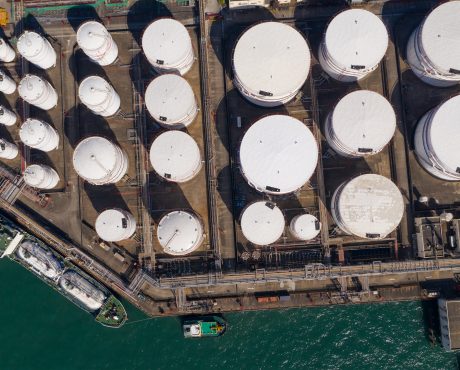Looking for Big Yield? Read This
If you’ve been following the energy sector, you’d know that things aren’t really in the best shape right now. The impact from the COVID-19 pandemic is still being felt, and with a massive oil price downturn earlier this year, even midstream operators have experienced sizable declines in their business. Layoffs, production cuts, and reduced dividends seem to be the norm.
And yet, one of the biggest players in the midstream energy space is still delivering massive cash payouts to investors.
I’m talking about Enterprise Products Partners L.P. (NYSE:EPD), a master limited partnership (MLP) headquartered in Houston, Texas. The MLP managed to grow its asset base from $715.0 million at its initial public offering (IPO) in 1998 to a whopping $57.0 billion at the end of 2019.
Today its portfolio consists of approximately 50,000 miles of crude oil, natural gas, natural gas liquid (NGL), petrochemicals, and refined products pipelines; around 260 million barrels of NGL, petrochemicals, refined products, and crude oil storage capacity; 14 billion cubic feet of natural gas storage capacity; 22 natural gas processing facilities; 24 fractionators; and 19 deepwater docks. (Source: “Investor Deck,” Enterprise Products Partners L.P., last accessed August 31, 2020.)
As EPD expanded its business both organically and through acquisitions, it also dished out an increasing stream of cash distributions to investors. In fact, the partnership has paid a higher distribution every year since its IPO. (Source: “Distribution Payments,” Enterprise Products Partners L.P., last accessed August 31, 2020.)
Given that the energy industry had quite a few ups and downs since 1998, the ability to deliver annual distribution hikes consistently makes EPD stock stand out.
Of course, the COVID-19 pandemic has resulted in the most challenging operating environment for a lot of businesses. And as I said, we are now in an era when dividend cuts are not uncommon in the energy industry. Will Enterprise Products Partners be able to sustain its payout?
Well, in August, the MLP paid a quarterly cash distribution of $0.445 per unit—in line with its previous distribution and 1.1% higher than its year-ago payout. So while there was no sequential increase, the partnership has maintained its distribution level after more than two decades of growth.
Trading at $17.58 per unit, Enterprise Products Partners stock offers an annual distribution yield of 10.1%.
Enterprise Products Partners L.P. Is a Special High-Yield Stock
Looking at the financials, we see that Enterprise Products Partners generated $1.6 billion in distributable cash flow in the second quarter of 2020. While the amount was down around eight percent year-over-year, it provided 1.6 times coverage of the MLP’s cash distribution to partners for the quarter. (Source: “Enterprise Reports Results for Second Quarter 2020,” Enterprise Products Partners L.P., July 29, 2020.)
In this challenging operating environment, a 10.1%-yielding MLP with a 1.6-times distribution coverage is a rare find.
One of the reasons that Enterprise can achieve this is that its business is largely fee-based. In the first half of this year, 88% of the MLP’s gross operating margin came from fee-based operations. As a result, the partnership can run a relatively stable business, despite commodity price volatility.
Of course, there is still uncertainty going forward. In the company’s latest earnings conference call, Enterprise’s Co-Chief Executive Officer and Chief Financial Officer Randall Fowler said, “given the uncertainty of the macroeconomic backdrop, our Board will continue to evaluate our distribution growth quarter-by-quarter in 2020.” (Source: “Enterprise Products Partners L.P. (EPD) Management on Q2 2020 Results – Earnings Call Transcript,” Seeking Alpha, July 29, 2020.)
In other words, it’s not clear when management will bring distribution growth back to Enterprise Products Partners L.P. However, in today’s low-yield environment, a 10.1% yield that’s well covered already makes EPD stock a name worth considering for income investors.
